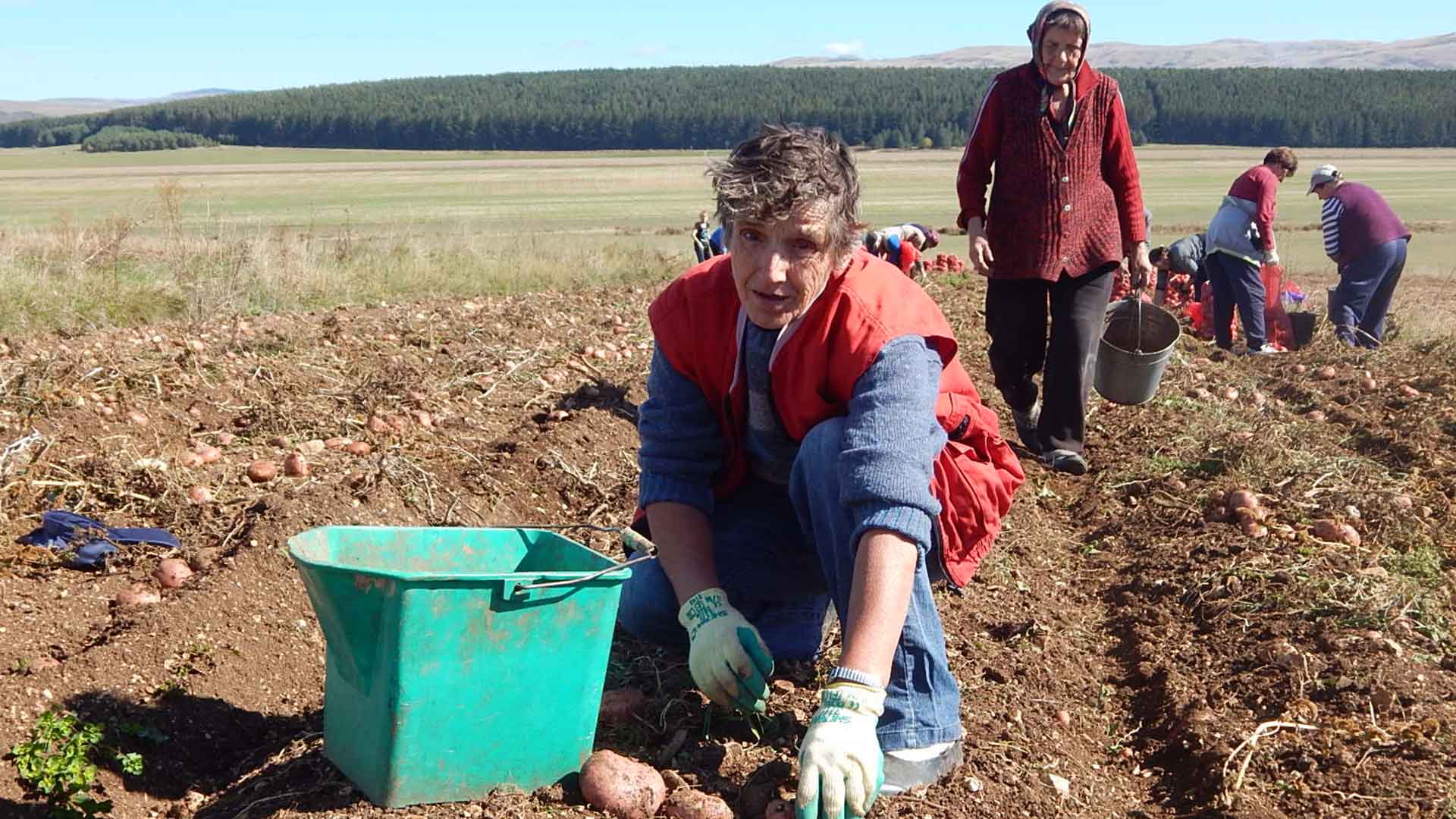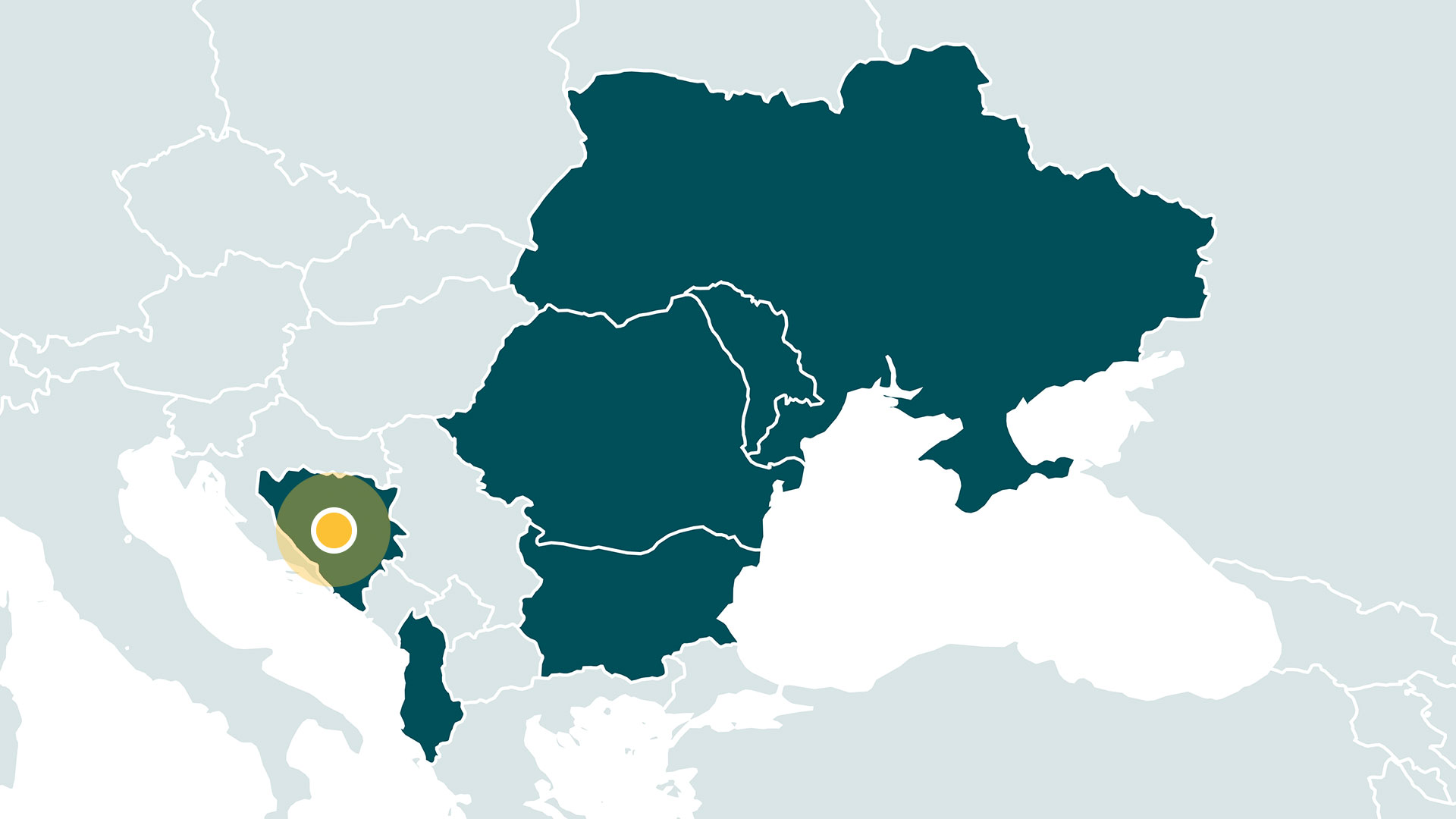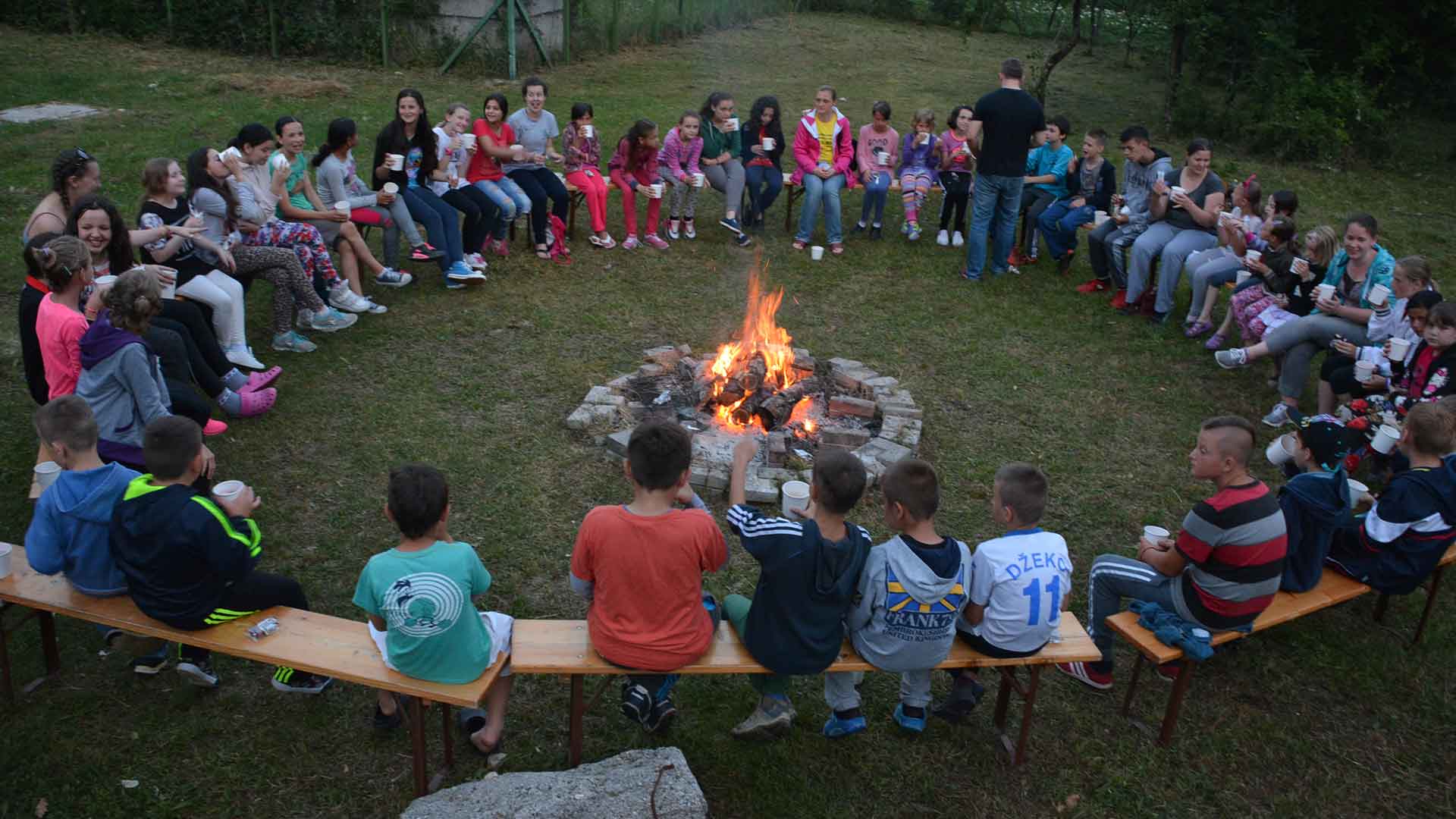
Bosnia and Herzegovina
Mission Without Borders started up in Bosnia and Herzegovina in 1995 as the brutal war ended.In Bosnia and Herzegovina, coffee is more than a beverage—it’s a cherished ritual with roots dating back to the 16th century. Bosnian coffee is brewed in a small, long-necked copper pot called a džezva and traditionally served on a round iron tray with a ceramic cup and sugar cubes. Enjoyed slowly, it’s an experience shared over meaningful conversations with friends and family.Mission Without Borders

Thanks to our generous sponsors, we have been working in Bosnia and Herzegovina since 1995. Currently, we are supporting 224 families in five communities, helping them develop their potential and find ways to provide for themselves.
The aftermath of war
Mission Without Borders began its work in Bosnia and Herzegovina in 1995 as the brutal war ended. Trauma and malnutrition were widespread, with hundreds of thousands of people in dire need and two million people displaced.
More than 100,000 people were killed in the war, and more than 20,000 went missing, believed to be dead.Mission Without Borders
Decades later, the remains of over 7,000 victims of the Bosnian War are still missing, with recovery efforts hindered by too few investigators at the Bosnian Missing Persons Institute.
In Srebrenica, 8,000 Bosnian Muslim males were executed in what became Europe’s largest massacre since the Holocaust. Thousands more were imprisoned in concentration camps like Omarska, where they suffered torture and horrific conditions.
Post-Traumatic Stress Disorder
The war began in 1992, not long after Yugoslavia had been dissolved. The creation of an independent Bosnian nation that would have a Bosniak majority was opposed by Bosnian Serbs. They launched a military campaign, beginning a horrific campaign of ethnic cleansing. Later, conflict also broke out in central Bosnia between Croats and Bosniaks, while in other regions they remained allies.
As a result of the war, it is estimated that 1.7 million people in Bosnia and Herzegovina currently suffer from post-traumatic stress disorder.Mission Without Borders
Subsequent generations are also affected by what is called transgenerational trauma, where parents’ stress responses have an impact on their children’s development.
Meeting families’ needs in war-torn Mostar
Mission Without Borders’s first project in Bosnia and Herzegovina was our family sponsorship programme in Mostar, where, to this day, many houses and buildings are scarred by shrapnel and bullet holes.
Families enrolled on Mission Without Borders’ family sponsorship programme received regular food and hygiene items, as well as emotional and spiritual support. When the war ended, children were underfed, exhausted, and traumatised, and parents were in survival mode. Spiritually, the greatest need was to forgive, reconcile, and find hope. Our regular support was – and continues to be – crucial in helping families recover and regain hope for the future.

Later, Mission Without Borders’ work expanded to other places including Sarajevo, Bugojno, Tuzla and Glamoc.
Ethnic division and ‘others’
The Dayton Accords, signed in 1995 to end the Bosnian War, established a power-sharing agreement among Bosnia and Herzegovina's three main ethnic groups, Bosniak, Serb and Croat. These groups largely correspond to the country's main religious communities—Islam, Orthodox Christianity and Roman Catholicism.
However, it had the unintended impact of entrenching the country as an ethnically divided state. Fear and grievances between groups continue to be exploited by politicians and are often reinforced by the media and by separate school curricula.
Those minority groups who do not fit the categories of Bosniak, Serb and Croat, an estimated 12% of the population, are labelled “Others” under the constitution – and have no real access to political power. This includes Roma people, who are also marginalised in other ways, with Roma children five times more likely to live in poverty than their non-Roma peers.
Poverty and unemployment
Bosnia and Herzegovina faced many challenges in the post-war period, and the consequences are still being felt today. Economic growth, reform and investment have been hindered by lingering ethnic divisions, along with widespread corruption, nepotism and organised crime.
One-third of all children in Bosnia and Herzegovina are experiencing poverty and subsequent hunger and malnutrition.UNICEF
Unemployment is over 27%, and only about half of working-age people are economically active. An average of 50,000 people – mostly skilled workers and professionals – leave Bosnia and Herzegovina every year.
The families that Mission Without Borders supports are battling to survive on low wages or struggling to find work. We also support the elderly living in poverty and have started up an after school club for Roma children. Sharing the message of hope, forgiveness and God’s love can be challenging in a country where people have experienced so much betrayal and animosity. Our local staff and volunteers faithfully serve God and demonstrate his love in tangible ways.
